Toronto, the city where the CN Tower pierces the sky and the streets hum with a symphony of cultures, is a place of endless possibilities. But with over 140 neighborhoods, each with its own personality, finding the nicest place to live can feel like searching for a needle in a haystack. Renowned urban planner Jane Jacobs once said, "Cities have the capability of providing something for everybody, only because, and only when, they are created by everybody." Toronto embodies this spirit, offering everything from the artsy vibes of Kensington Market to the serene parks of The Beaches. Meanwhile, Richard Florida, the urban studies theorist, has praised Toronto’s ability to attract the "creative class," making it a hub for innovation and culture. And let’s not forget Malcolm Gladwell, who has often highlighted the city’s unique blend of diversity and opportunity. So, where is the nicest place to live in Toronto? The answer depends on who you are and what you’re looking for. Let’s explore.
Understanding Toronto’s Neighborhoods
Toronto is a city of neighborhoods, each with its own unique flavor. Think of it as a giant buffet—there’s something for everyone, but you’ll need to know what’s on the menu before you dig in. From the historic charm of The Annex to the bustling energy of Downtown, Toronto’s districts are as diverse as its people. But how do you choose the right one for you? Let’s break it down.
The Diversity of Toronto’s Districts
Toronto’s neighborhoods are like a patchwork quilt, stitched together with threads of culture, history, and modernity. Take The Annex, for example. Known for its Victorian homes and tree-lined streets, it’s a favorite among academics and artists. Then there’s Kensington Market, a bohemian paradise where you can find everything from vintage clothing to vegan tacos. And let’s not forget The Beaches, a lakeside haven perfect for families and outdoor enthusiasts. Each neighborhood has its own vibe, and finding the right one is all about matching it to your lifestyle.
Key Factors to Consider
Choosing a neighborhood isn’t just about finding a place to live—it’s about finding a place to thrive. Start by considering your daily needs. How close is it to your workplace? Are there good schools nearby if you have kids? What about public transit? The TTC is a lifeline for many Torontonians, so proximity to a subway or streetcar stop can make a big difference. Safety is another crucial factor. While Toronto is generally a safe city, some neighborhoods have lower crime rates than others. And don’t forget about the community vibe. Do you want a bustling urban center or a quiet suburban retreat? These are the questions you’ll need to answer before making a decision.
Top Neighborhoods Overview
Let’s take a quick tour of some of Toronto’s most popular neighborhoods. King West is a hotspot for young professionals, with its trendy restaurants and nightlife. Leslieville, on the other hand, is a family-friendly area with a laid-back vibe. The Beaches offers a mix of natural beauty and urban convenience, while North York is a bustling hub with a mix of residential and commercial spaces. Each of these neighborhoods has its own unique appeal, and we’ll dive deeper into them later in this guide.
Affordability and Housing Options
Let’s face it: Toronto isn’t exactly known for being cheap. In fact, it’s one of the most expensive cities in Canada. But don’t let that scare you off—there are still ways to find a place that fits your budget without sacrificing your sanity. Whether you’re looking to buy or rent, understanding the cost of living in Toronto is the first step to making a smart decision.
The Cost of Living in Toronto
Toronto’s housing market is like a rollercoaster—exciting, unpredictable, and sometimes downright terrifying. The average price of a home in the city is hovering around $1.1 million, while renting a one-bedroom apartment can set you back $2,500 a month. But don’t panic just yet. Neighborhoods like Scarborough and East York offer more affordable options without skimping on amenities. Pro tip: if you’re on a tight budget, consider looking for basement apartments or shared housing—it’s a great way to save money while still living in the city.
Buying vs. Renting
Ah, the age-old question: should you buy or rent? If you’ve got the cash and plan to stay in Toronto long-term, buying might be the way to go. But let’s be real—coming up with a down payment in this market is like trying to win the lottery. Renting, on the other hand, offers more flexibility and fewer headaches (no leaky roofs to fix!). Plus, with rental prices stabilizing in some areas, it’s not a bad time to be a tenant. Still unsure? Check out this guide from CMHC to help you decide.
Hidden Gems for Budget-Conscious Residents
If you’re willing to venture a little off the beaten path, there are some hidden gems in Toronto that won’t break the bank. East York is a great option for families, with its quiet streets and excellent schools. Scarborough is another affordable choice, offering a mix of suburban charm and urban convenience. And let’s not forget about Etobicoke, where you can find spacious homes at a fraction of the cost of downtown. Who says you can’t have it all?
Lifestyle and Amenities
Toronto is a city of endless possibilities, and the neighborhood you choose can make or break your experience. Whether you’re raising a family, climbing the corporate ladder, or enjoying your golden years, there’s a perfect spot for you. Let’s dive into the best neighborhoods for different lifestyles.
Best Neighborhoods for Families
If you’ve got kids, you’ll want to live in a neighborhood that’s safe, family-friendly, and packed with activities. Leaside is a top pick, with its tree-lined streets, top-rated schools, and community centers. High Park is another great option, offering a massive park (complete with a zoo!) and plenty of family-friendly events. And let’s not forget about The Beaches, where you can spend your weekends building sandcastles and strolling along the boardwalk. Who needs a vacation when you live here?
Trendy Spots for Young Professionals
If you’re a young professional looking to make your mark, you’ll want to live in a neighborhood that’s buzzing with energy. King West is the place to be, with its trendy restaurants, chic bars, and endless networking opportunities. Liberty Village is another hotspot, offering a mix of modern condos and coworking spaces. And if you’re a fan of the arts, The Entertainment District is the perfect place to call home. Just don’t forget to sleep—your career will thank you.
Retirement-Friendly Communities
Retirement is all about relaxation, and Toronto has plenty of neighborhoods that cater to a slower pace of life. Rosedale is a top choice, with its quiet streets, beautiful homes, and easy access to healthcare. Forest Hill is another great option, offering a mix of luxury and tranquility. And if you’re looking for a community vibe, The Danforth is the place to be, with its lively events and friendly neighbors. Who says retirement has to be boring?
Safety and Community
When choosing a neighborhood, safety and community are often top priorities. Toronto is generally a safe city, but like any major metropolis, crime rates vary by area. Understanding the safety landscape and the sense of community in different neighborhoods can help you make an informed decision.
Crime Rates Across Toronto
Toronto’s crime rates are relatively low compared to other major cities, but some areas are safer than others. Neighborhoods like Rosedale and Forest Hill consistently rank as some of the safest, with low rates of violent and property crimes. On the other hand, areas like Regent Park and parts of Scarborough have higher crime rates, though ongoing revitalization efforts are improving safety in these neighborhoods.
Here’s a quick comparison of crime rates in popular Toronto neighborhoods:
| Neighborhood | Crime Rate (per 1,000 residents) |
|---|---|
| Rosedale | 12.3 |
| Forest Hill | 14.7 |
| King West | 18.9 |
| Regent Park | 32.4 |
Community Engagement and Events
Toronto is known for its vibrant communities, and some neighborhoods stand out for their strong sense of belonging. The Danforth, for example, is famous for its annual Taste of the Danforth festival, which brings residents together to celebrate Greek culture. Similarly, Roncesvalles hosts the Roncesvalles Polish Festival, showcasing the area’s rich heritage.
Other neighborhoods with strong community vibes include:
- High Park: Known for its family-friendly events and outdoor activities.
- Leslieville: A hub for local markets and art festivals.
- The Beaches: Famous for its summer concerts and beachside events.
Accessibility and Public Transit
Getting around Toronto is a breeze thanks to the Toronto Transit Commission (TTC), which operates buses, streetcars, and subways. Neighborhoods like Downtown and North York are well-served by public transit, making them ideal for commuters. However, areas like Etobicoke and Scarborough may require longer travel times, though ongoing transit expansions aim to improve connectivity.
Here’s a quick look at transit accessibility in key neighborhoods:
- Downtown: Excellent subway and streetcar access.
- North York: Multiple subway stations and bus routes.
- The Beaches: Limited subway access but well-served by buses.
- Etobicoke: Reliant on buses and GO Transit.
Future Trends in Toronto’s Real Estate
Toronto’s real estate market is constantly evolving, driven by urban development, population growth, and technological advancements. Understanding these trends can help you make smarter decisions about where to live and invest.
Up-and-Coming Neighborhoods
Some neighborhoods are on the rise, offering great potential for both residents and investors. Mimico, located along Lake Ontario, is undergoing significant redevelopment, with new condos and amenities transforming the area. Similarly, the Port Lands are being revitalized as part of a massive urban renewal project, promising a mix of residential, commercial, and recreational spaces.
Other neighborhoods to watch include:
- West Don Lands: A growing hub for young professionals.
- Liberty Village: Already popular, but with ongoing developments.
- Scarborough: Affordable options with new infrastructure projects.
Impact of Urban Planning
Toronto’s future is being shaped by ambitious infrastructure projects. The Ontario Line, a new subway line set to open in the 2030s, will improve connectivity across the city, particularly in underserved areas. Additionally, the Waterfront Toronto initiative is transforming the city’s shoreline into a vibrant, sustainable community.
Key projects to watch:
- Ontario Line: Expected to reduce congestion and improve transit access.
- Waterfront Toronto: Creating a mix of residential, commercial, and green spaces.
- Eglinton Crosstown LRT: A new light rail line connecting Scarborough to Etobicoke.
Sustainability and Green Living
As environmental concerns grow, Toronto is embracing sustainable living. Neighborhoods like the Toronto Islands and Evergreen Brick Works are leading the way with eco-friendly initiatives. From green building designs to community gardens, these areas are setting the standard for sustainable urban living.
Here’s how Toronto is going green:
- Green Roofs: Many new buildings feature rooftop gardens.
- Bike Lanes: Expanding network of bike lanes across the city.
- Renewable Energy: Increasing use of solar and wind power in new developments.
AI Solutions: How Could AI Help?
Artificial Intelligence (AI) is no longer just a buzzword; it’s a transformative force reshaping industries, and urban living is no exception. In a city as dynamic as Toronto, AI has the potential to revolutionize how we choose where to live, how neighborhoods evolve, and how we interact with our urban environment. Here’s how AI could make Toronto an even better place to call home.
AI-Powered Neighborhood Matching
Imagine an AI tool that analyzes your lifestyle, budget, and preferences to recommend the perfect neighborhood. By leveraging machine learning algorithms, platforms like Zillow and Realtor.ca could evolve to offer hyper-personalized suggestions. For instance, if you’re a young professional who values nightlife and short commutes, AI could highlight King West or Liberty Village. Families might be steered toward Leaside or High Park for their schools and parks. This isn’t just convenience—it’s about making smarter, data-driven decisions.
Predictive Analytics for Real Estate
AI can also predict future trends in housing prices and neighborhood development. By analyzing historical data, economic indicators, and urban planning projects, AI models could forecast which areas are likely to appreciate in value. For example, neighborhoods like Mimico and Port Lands, currently undergoing rapid development, could be flagged as prime investment opportunities. Tools like CoreLogic are already paving the way, but integrating AI could take this to the next level.
Smart City Initiatives
Toronto is already experimenting with smart city concepts, and AI is at the heart of it. From optimizing traffic flow to reducing energy consumption, AI can make urban living more efficient and sustainable. For instance, AI-powered traffic systems could reduce congestion in busy areas like Downtown Toronto, while smart grids could lower energy costs in residential neighborhoods. Projects like Sidewalk Toronto are a glimpse into this future, but the possibilities are endless.
Virtual Neighborhood Tours
Why visit a neighborhood in person when you can explore it virtually? AI-driven virtual reality (VR) tours could allow potential residents to walk through streets, visit parks, and even step inside homes—all from the comfort of their couch. Companies like Matterport are already offering 3D tours, but integrating AI could make these experiences more interactive and personalized. Imagine an AI guide that answers your questions in real-time or suggests nearby amenities based on your interests.
Action Schedule/Roadmap
Here’s a detailed roadmap for implementing AI solutions in Toronto’s urban living landscape:
- Day 1: Assemble a team of data scientists, urban planners, and AI experts to identify key areas for AI integration.
- Day 2: Partner with real estate platforms like Realtor.ca to develop AI algorithms for neighborhood matching.
- Week 1: Collaborate with the City of Toronto and organizations like Toronto City Council to access urban data for predictive analytics.
- Week 2: Launch a pilot program for AI-powered neighborhood matching in select areas like King West and Leaside.
- Month 1: Analyze pilot program results and refine algorithms based on user feedback and data insights.
- Month 2: Expand the program to include predictive analytics for real estate, focusing on up-and-coming neighborhoods like Mimico.
- Year 1: Implement smart city initiatives, such as AI-powered traffic systems and energy-efficient grids, in Downtown Toronto.
- Year 1.5: Launch virtual neighborhood tours using AI and VR technology, starting with high-demand areas like The Beaches and North York.
- Year 2: Evaluate the success of AI solutions, gather community feedback, and scale up initiatives across the city.
Toronto’s Future: A City Transformed by AI
Toronto is a city of endless possibilities, and AI is the key to unlocking its full potential. From helping you find the perfect neighborhood to making the city smarter and more sustainable, AI is poised to transform urban living in ways we’re only beginning to imagine. But this isn’t just about technology—it’s about people. It’s about creating a city where everyone, from young professionals to retirees, can thrive. It’s about building communities that are not only connected but also compassionate, where technology enhances our lives without overshadowing the human experience.
As we look to the future, one thing is clear: Toronto is on the brink of a new era. An era where AI doesn’t just solve problems but also inspires new ways of thinking, living, and connecting. So, whether you’re searching for a new home or simply curious about the future of urban living, remember this: the best is yet to come. And with AI as our guide, the journey promises to be as exciting as the destination.
What do you think about the role of AI in shaping Toronto’s future? Could it make the city an even better place to live? Share your thoughts in the comments below, and don’t forget to subscribe to our newsletter for more insights into the future of urban living. Together, let’s make Toronto the shining city on the web.
FAQ
Q1: What is the most affordable neighborhood in Toronto?
A: Scarborough and East York are known for their affordability while still offering great amenities. Scarborough, in particular, has a mix of residential areas and commercial hubs, making it a practical choice for budget-conscious residents. For more details, check out the Toronto News page for local insights.
Q2: Which neighborhood is best for families?
A: Leaside and High Park are popular choices for families due to their excellent schools, parks, and family-friendly activities. Leaside is known for its quiet streets and strong community vibe, while High Park offers access to one of Toronto’s largest green spaces. Learn more about these neighborhoods on the Toronto News page.
Q3: How can AI help me find the perfect neighborhood?
A: AI can analyze your preferences, budget, and lifestyle to match you with the ideal neighborhood. For example, AI-powered tools like Zillow and Realtor.ca use algorithms to suggest homes and areas that fit your needs. These tools can save you time and help you make a more informed decision.
Q4: What are the safest neighborhoods in Toronto?
A: Rosedale and Forest Hill are known for their low crime rates and strong community presence. These neighborhoods are also home to some of Toronto’s most prestigious schools and parks. For more information on safety and community events, visit the Toronto News page.
Q5: Are there any up-and-coming neighborhoods in Toronto?
A: Mimico and Port Lands are undergoing rapid development and are great options for future investment. Mimico, located near Lake Ontario, is becoming a hotspot for young professionals, while Port Lands is being transformed into a vibrant mixed-use community. Stay updated on these developments through the Toronto News page.
Q6: What are the best neighborhoods for young professionals?
A: King West, Liberty Village, and the Entertainment District are hotspots for young professionals seeking vibrant nightlife and career opportunities. These areas are close to downtown and offer a mix of modern condos, trendy restaurants, and cultural attractions. For more insights, check out the Toronto News page.
Q7: How does public transit vary across Toronto neighborhoods?
A: Public transit options vary widely across Toronto. Downtown neighborhoods like the Financial District have excellent access to the TTC, while suburban areas like Scarborough rely more on buses and GO Transit. For detailed transit maps and schedules, visit the TTC website.
Q8: What are the best neighborhoods for retirees?
A: Rosedale and Forest Hill are popular among retirees for their tranquility, accessibility, and top-notch healthcare facilities. These neighborhoods offer a mix of historic homes and modern amenities, making them ideal for a relaxed lifestyle. For more information, visit the Toronto News page.
Q9: How can I stay updated on Toronto’s real estate trends?
A: To stay updated on Toronto’s real estate trends, follow trusted sources like the Toronto Real Estate Board and the Toronto News page. These platforms provide valuable insights into market trends, pricing, and neighborhood developments.
Q10: What are some eco-friendly neighborhoods in Toronto?
A: The Toronto Islands and Evergreen Brick Works are leading the way in eco-friendly living. These areas focus on sustainability, green spaces, and community initiatives. For more information on green living in Toronto, visit the Toronto News page.
Wait! There's more...check out our gripping short story that continues the journey: City Compass
Disclaimer: This article may contain affiliate links. If you click on these links and make a purchase, we may receive a commission at no additional cost to you. Our recommendations and reviews are always independent and objective, aiming to provide you with the best information and resources.
Get Exclusive Stories, Photos, Art & Offers - Subscribe Today!
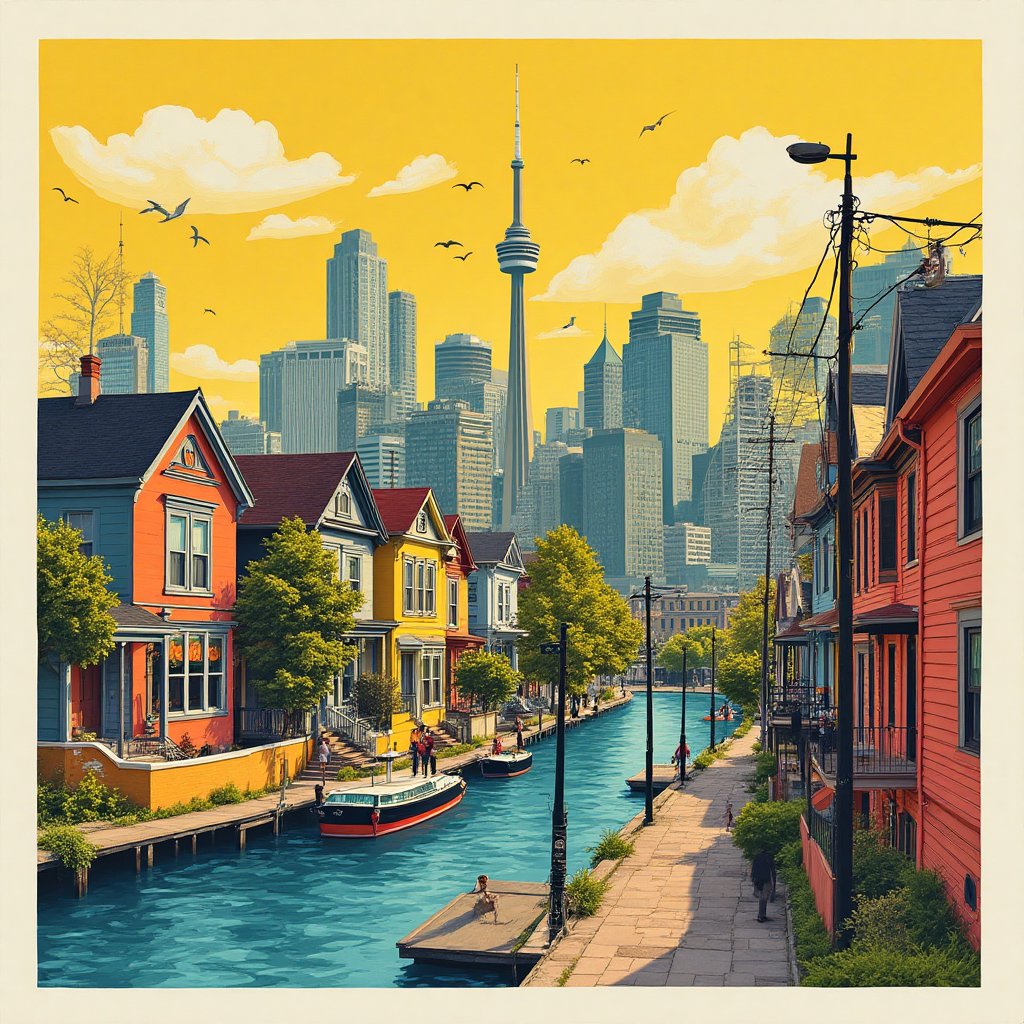
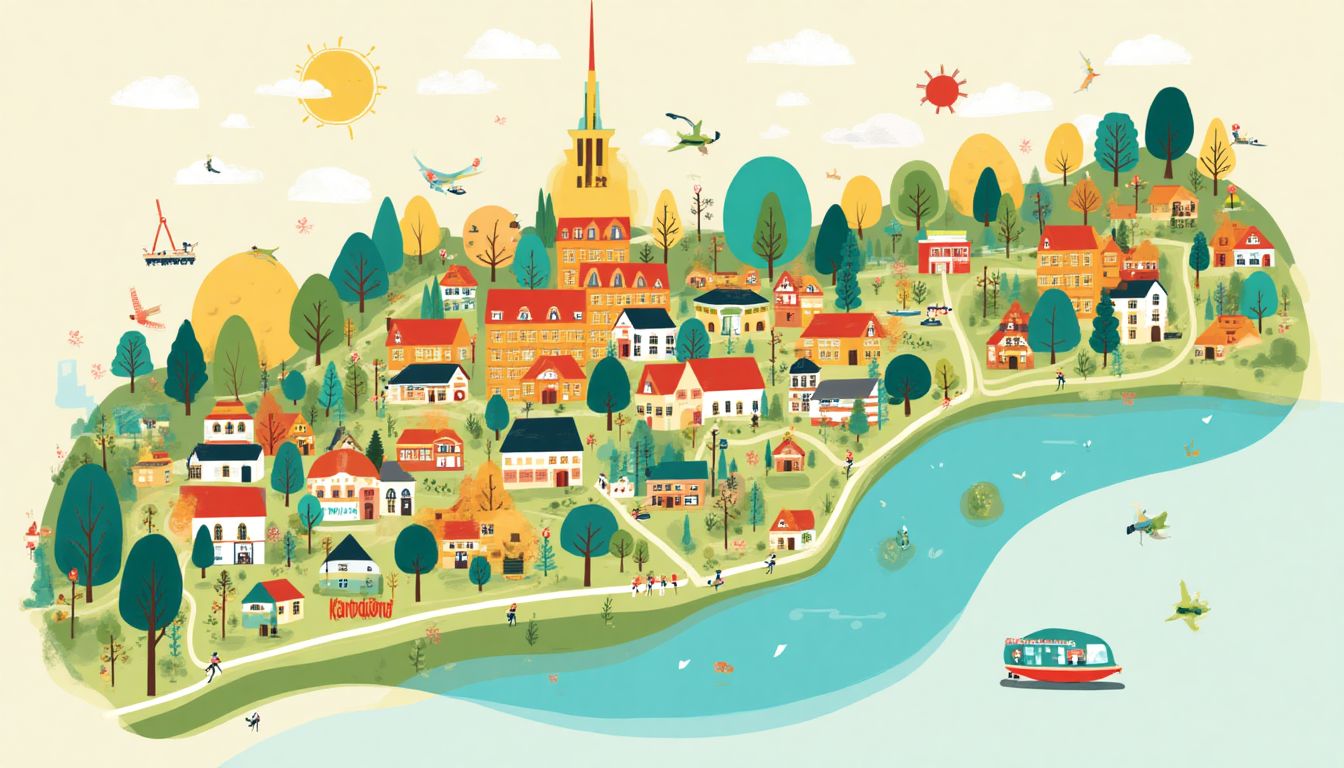
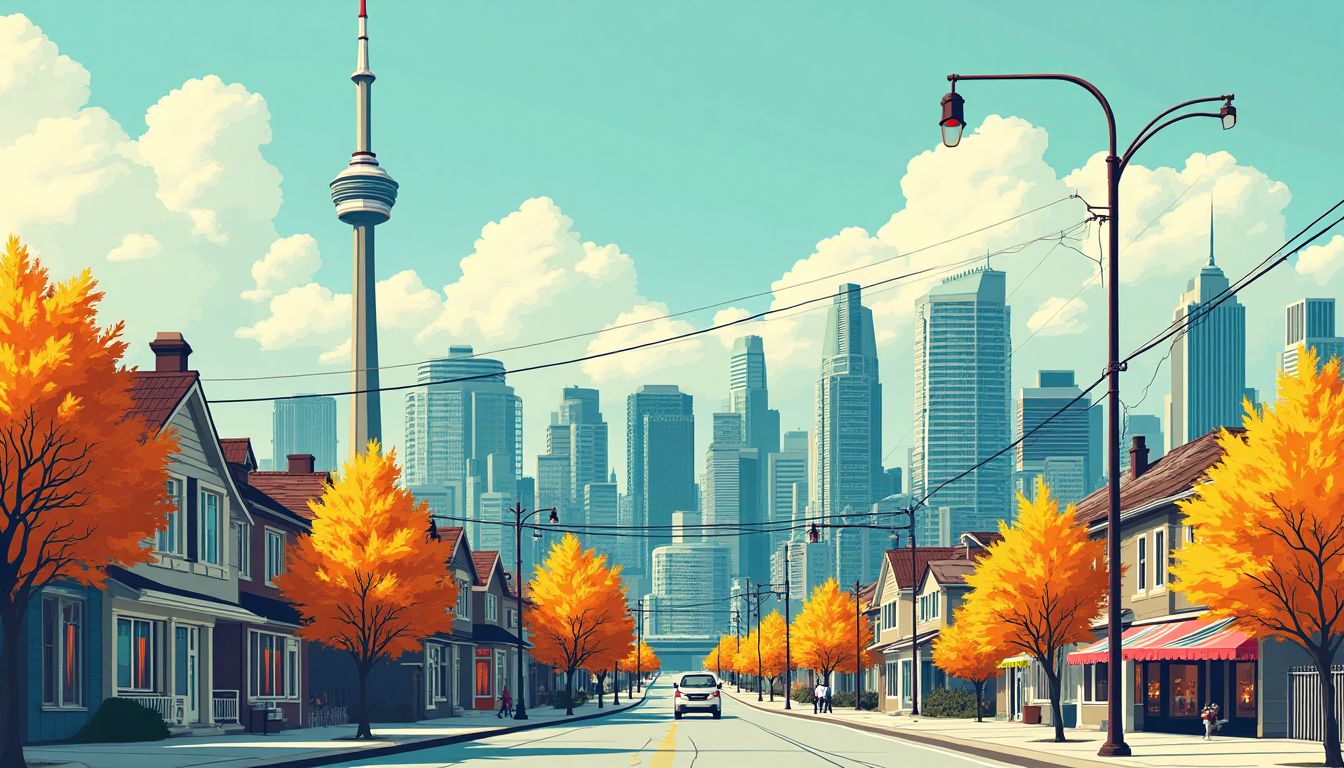
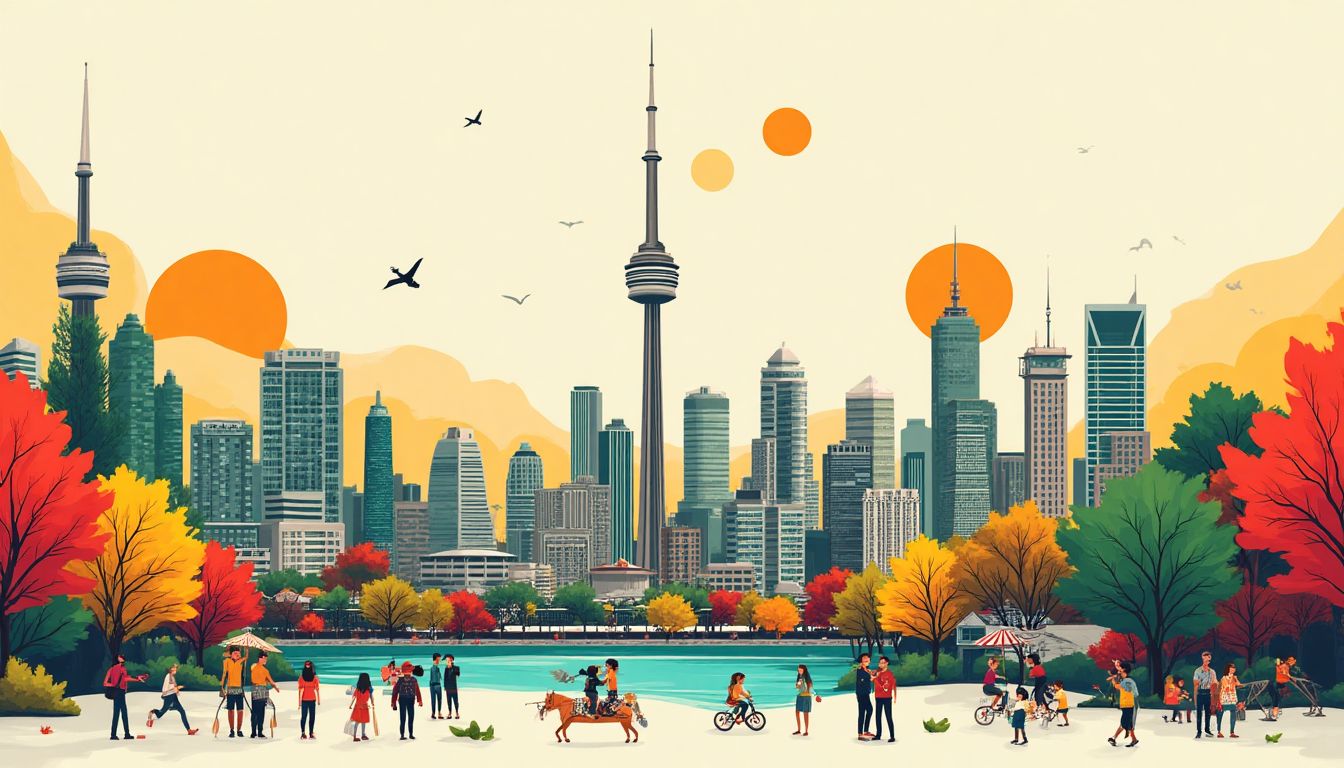


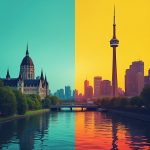

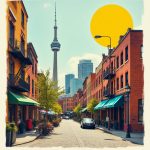
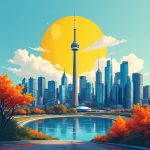
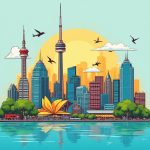


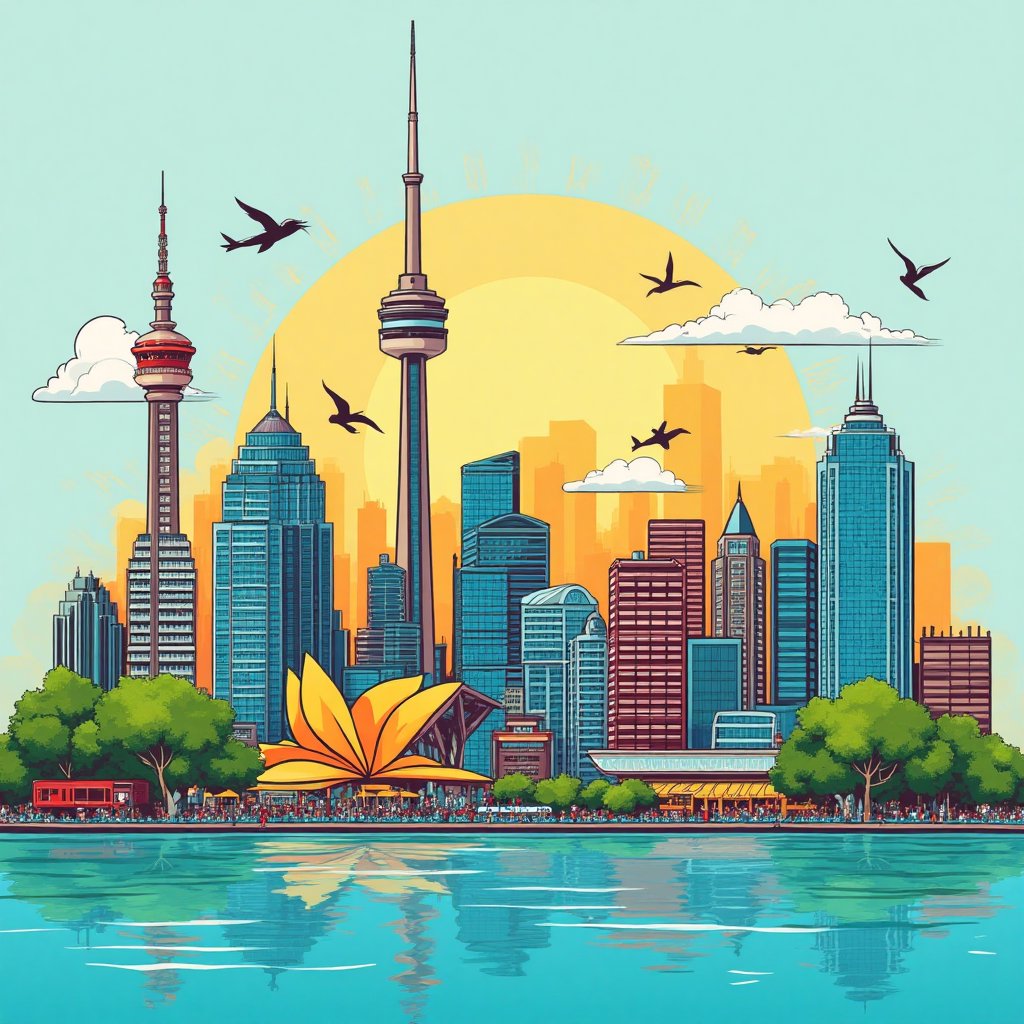















Post Comment
You must be logged in to post a comment.